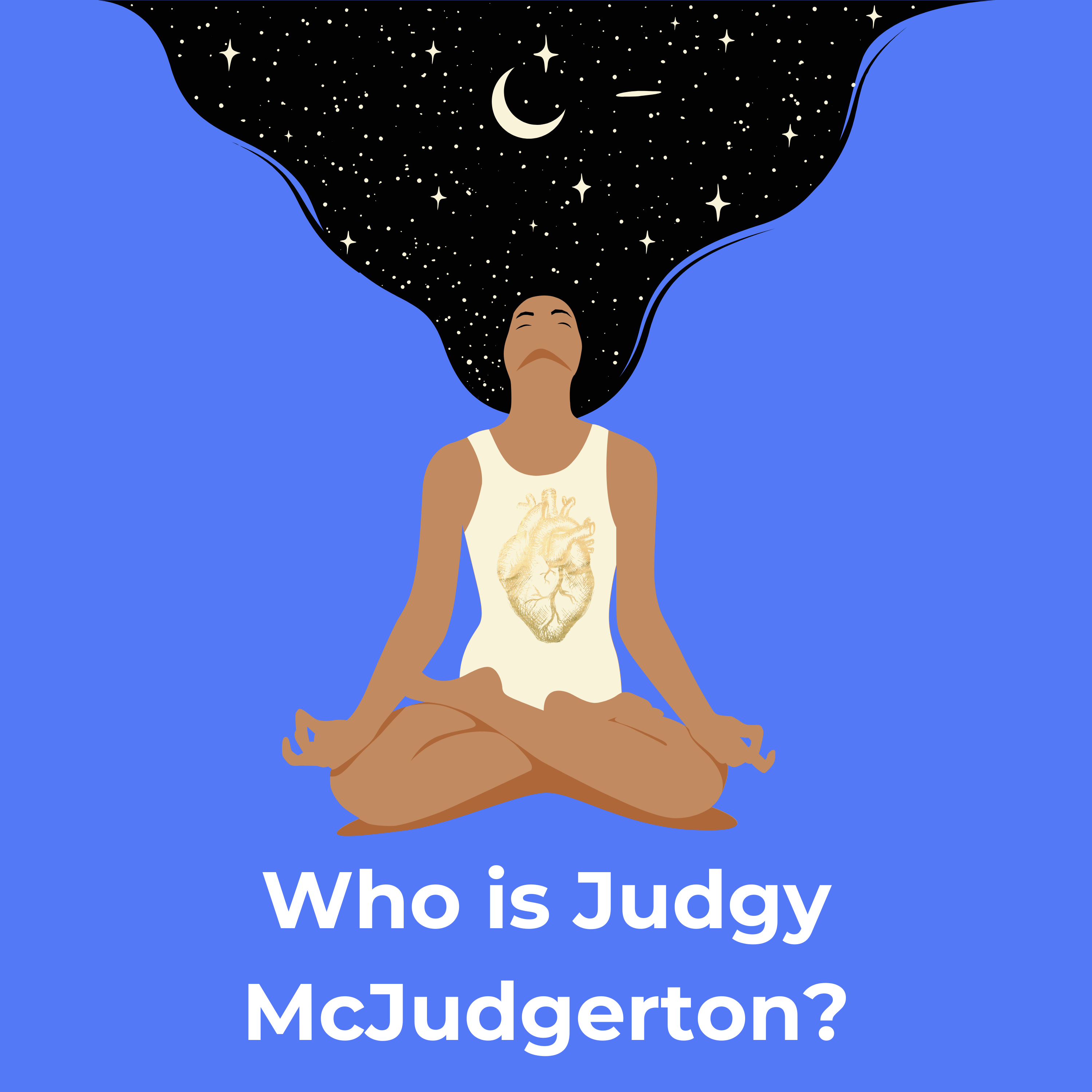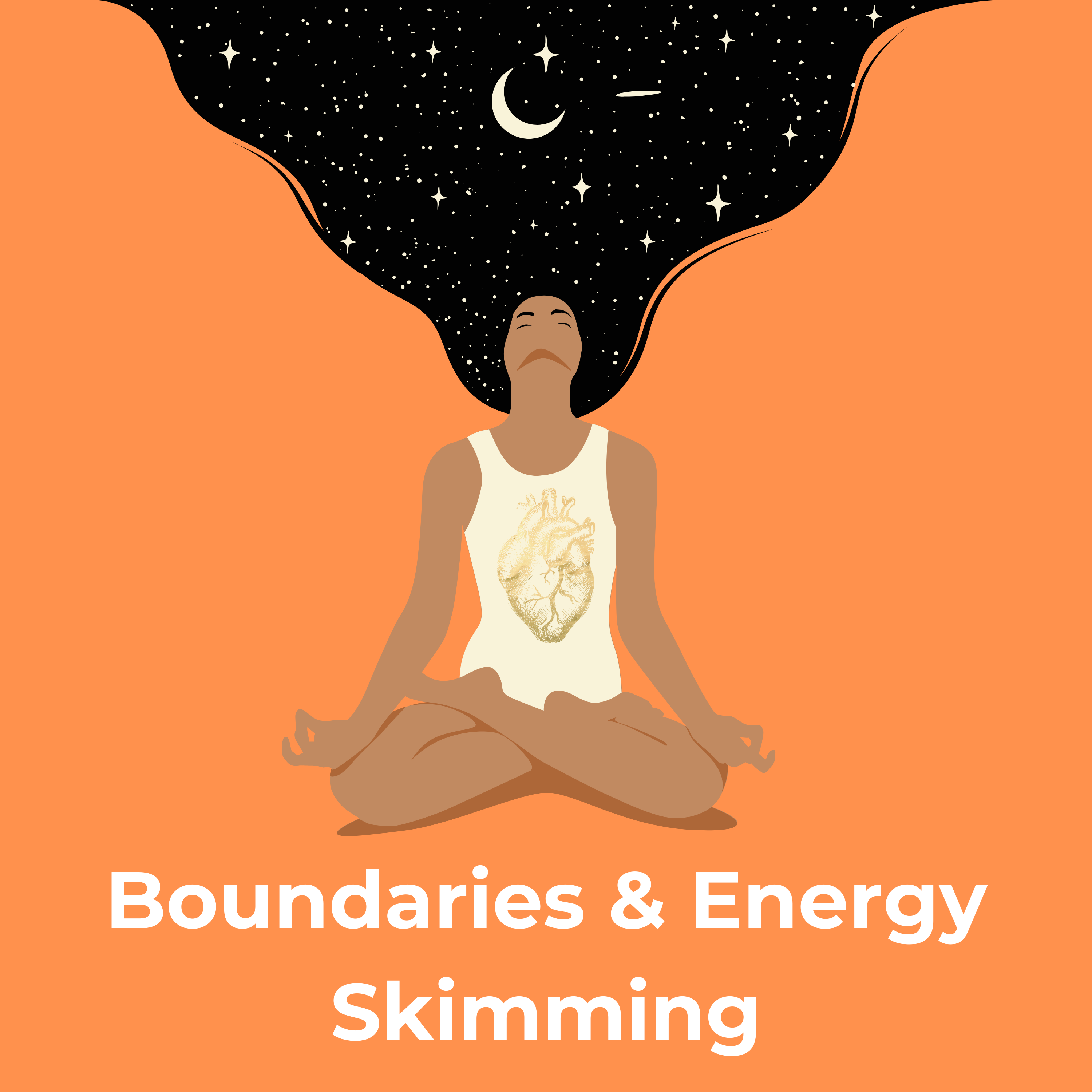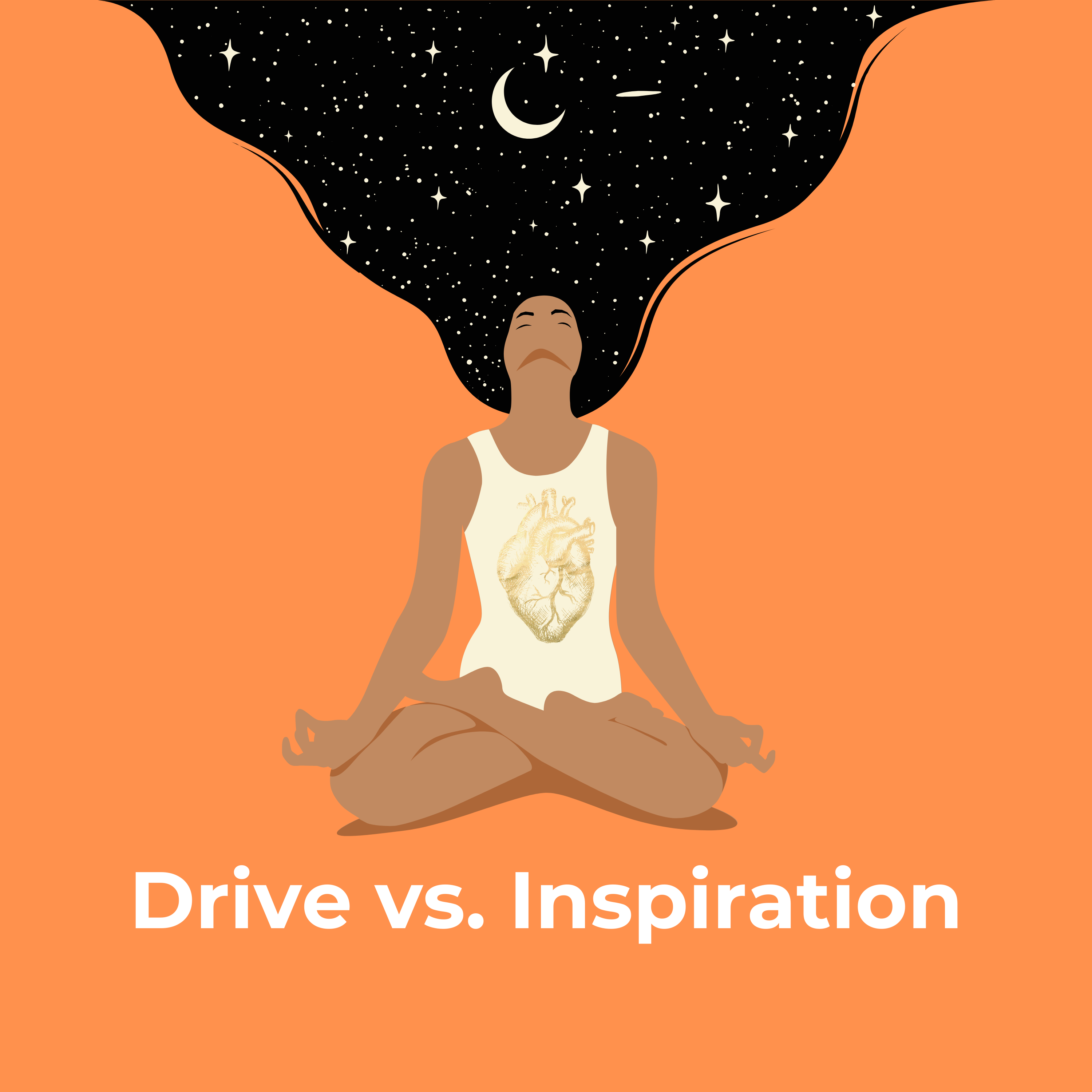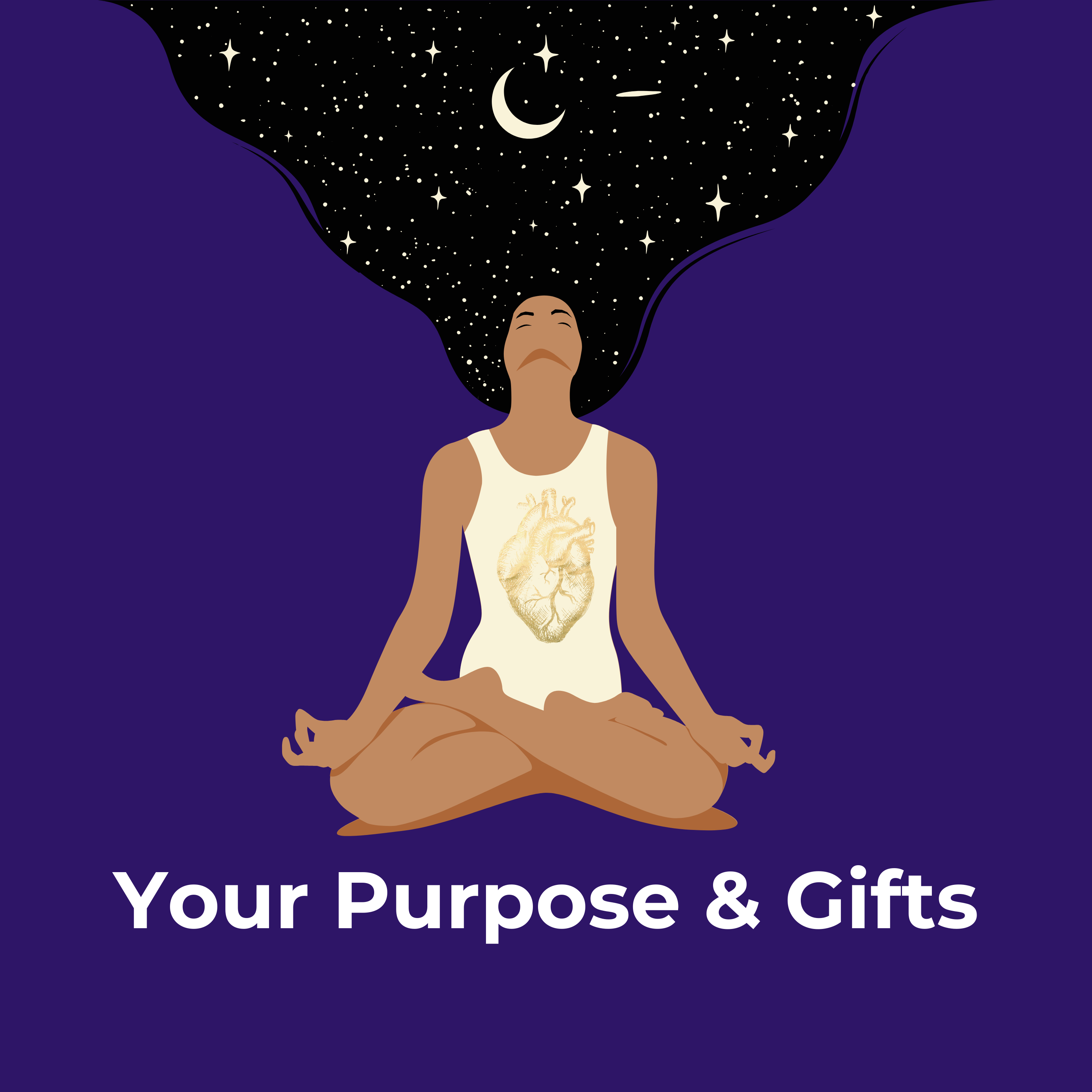Episode Transcript
[00:00:01] Speaker A: The world of healing can be treacherous, but suddenly Spiritual aims to provide real, honest, practical spiritual knowledge and wisdom for the true seekers among us.
The goal is to ignite the divine human within each listener, raising the collective consciousness for our planet. We will challenge your preconceptions, push your buttons, and encourage deep reflect. We're not here to adhere to the status quo of what the new age spiritual market wants you to buy into and believe.
Consider this your antidote to the woo, woo and a place of woo. You.
[00:00:53] Speaker B: What I think a lot of times blocks people from their life's purpose is the judgments that they have about their life's purpose because they're in the trap of comparison with other people. And I've said this quote so many times on this podcast that comparison is the thief of joy. And when you have judgments about yourself in comparison to other people, it blocks you from doing anything. It really paralyzes you, I think. And it's also judgments about others, how people are further along, judgments about how you know, what kind of upbringing, what kind of schooling, how they show up in the world, and then you apply those to you. And a lot of times this is, this stems from social media looking at social media, at people's highlight reel, their curated highlight reel, and comparing that to your, your everyday life that you think is mundane. So judgment is a huge blockage when it comes to actually determining what your life's purpose is and you getting moving, moving forward as to what you're going to do, how you're going to do it, and what you're really, really wanting to create and manifest in the world when it comes to your purpose.
[00:02:16] Speaker A: That's interesting. I find when I'm hearing that voice and I am judging, it's more often than not I'm external, I'm pushed out, my awareness is outside.
And when I try and turn it internally and go, well, this is just all about me. I choose how to react, I choose how to act, all that sort of stuff. And then I get caught in that trap again where I'm judging.
And I've worked on trying to subtly not judge, but compare. And as you mentioned with that quote, I need to know where I am. And the only way to know where you are is to kind of look around and go, okay, I'm here.
And, you know, how do I know it's daytime? Well, because the moon comes out at some point, so I know it's not the sun and vice versa, so I need to know, okay, I'm here, I'm here. But what I finding now is I get further ahead, leaps and bounds when I'm internal. And then comparing me to me as opposed to comparing me to other people, because as my self awareness has increased, it's back to that stupid analogy. The rock and the orange. Right, the rock and the orange. And that's mine. So people can go with it or not, but those are the two things that I think are so completely different. Aside from maybe being round at some point. But I don't think I've ever seen a naturally round rock. Okay, I'm going off on a tangent, but come back the point, the point being is I'm comparing my work to my previous work or my whatever, to my previous whatever where I how did I do that? Did I enjoy it? Was it easier? And when I'm comparing me to other people currently, it seems like a complete waste of time because every time I do that I'm like, well, they're not me and I have no idea what's going on. Their lives, their circumstances, whatever. So how can I say, look, they're there and I'm here.
And I remember back to those feelings of judgment. And then you start making excuses. Whether it's for them or for me.
They're this, they have money, they have privilege. And then, you know, what makes them so good? And then all my energy used to go into like tearing them down in my mind and I'm reflecting on that now and going, what a waste of my energy.
Complete waste of my energy and brain power. Why don't I just try and be the best me possible?
And throughout my life, me being the best me possible is always better than other people because I'm only competing with myself.
As far as judgment goes, you're absolutely right. Especially being a creative. As soon as I start getting external and judging other people along with me and comparing me to them, then it's like my energy is going in the wrong way. And then I get distracted. Ooh, shiny thing. You know, just like the tangent, people saw that in real, real time. Just now you just go off on that tangent. But that tangent is the judgment.
Then the other half to that is, okay, I'm looking at me and comparing me to me on the journey and where I was and where I am.
But I know initially, and I'm thinking this is common for most other people, when we start doing that, then I'm uncharacteristically too hard on myself when I'm judging. So what can people do a to help them? Maybe be more internal. Because that's what I discovered because as soon as I'm more external, the energy is coming away from me. And then when they are, I guess, quote unquote, comparing themselves to themselves on their journey and not judging not to be too harsh on themselves, I love.
[00:06:32] Speaker B: Asking the question, why?
Why did this happen to me? And why did that happen to me? Why? Why? Why? So, and, and that's a good exercise in the short term. But in the long term, what I have come to realize, I think, in the last week, to be honest, is that when I'm consistently in, the question of why, when it comes to the past, I'm in the past, why becomes a question and a weapon of distraction to not be in the now.
And when you're comparing yourself against your former self, sometimes on the outside, how you were back then might actually seem more positive to you.
I was younger, I was fitter, I made more money, I did this, I had these external trappings. And then you're comparing yourself your current self, and you're like, oh, well, now I'm doing this kind of work, and it's so different from the type of work I was doing before. And then you start to compare yourself very negatively to your former self and you get into the why? Question of why did I do that? Why can't I just go back to that? Why can't I just go back to that former self? It was so easy back then. And I think this is a trap when it comes to spiritual development. There have been times in my life I can admit this, I could be honest and tell the truth about this for sure, that I'm like, it was so much easier when I was ignorant.
Life was so much easier.
I didn't have all these thoughts and I didn't have all these quote unquote things I have to do. Whether it's meditation or breath work or reading or contemplating, things were so much easier when I was ignorant.
And I asked myself the question, yeah, but were you really happy back then or was it an illusion when you were a crazy workaholic who would have 14 Zoom meetings back to back to back to back every single day? And that's a true story. 14 Zoom meetings every single day.
Were you really happy? But externally, it looked really good on paper. It's like, look, you know, really doing well in building a marketing team and all of these other trappings, working in healthcare tech, this, this, that, and the other thing. But if I was to compare myself now to back then, again, externally, it would look like I'm doing worse.
So what version of yourself are you really comparing to what version is it? And what were you really like then? What was your internal world like?
And then what's your internal world now? But being very cautious of the question of why and the question of what externally things looked like for you back then versus how they were in your internal world. I was so stressed.
So, so stressed.
I barely slept. I wouldn't really interact with friends.
I always felt like I was under some sort of deadline or pressure, and my whole life revolved around work and other people.
But again, like, it looked really good from the outside, but on the inside it was. It was rather sad, to be honest. But I was a little more ignorant then.
[00:10:13] Speaker A: Well, I have a very similar story. And what I was realizing as you were saying, that is, you were busy. I was busy, and I was doing things.
And as I was doing things and leading people, I didn't have time to connect. I was very Curtis. I was just, let's get it done.
And the worse I was, the more people responded and the more got done, as opposed to being a human being and connecting with them. It was just like, okay, we got to do this. And then I look back and go, man, we got a lot done.
And I was busy. And then I didn't have time to reflect. And as I'm thinking back, I didn't have time to be emotional to be a human being.
I was just a functional robot.
And it was just go, go, go, adrenaline, fight, fight, fight, fight. Or flight, amygdala, going nuts. Just doing that over and over again. And I accomplished a lot. Which initially, when I would look back, I'm like, okay, what did I do today? Nothing.
Yeah, but doing nothing is actually an accomplishment, and it's not easy.
Which sounds kind of contradictory where, okay, I gotta do this. Here's my list. I gotta do this. And when I choose not to do that stuff, that's actually a conscious thing, because, you know, figuring out I'm an introvert and an extrovert, but what order it is and all that sort of stuff, and that I need to recharge because I am an artist. And I denied that for so long because society has a certain view of artists. We're not successful, we're mushy, we will never climb the corporate ladder. Yeah, that's exactly the point. But then we'll create a company and then we'll get people to work. So once I realized, okay, as an artist, artists need to live life to be able to create art, but if I'm not living life, I can't create Art.
And as far as the judgment goes. Yeah. It's something that is ongoing. Like we've stated before. It's not like I can say, okay, here's the final version of me. I'm done. Okay. Yeah, the race is over. It's constantly evolving.
And for me, it was the same thing. Yeah. That it was easy because I had my regimen. I would wake up and do this, this, this, this, go there, get this done. Okay, what' new thing today? Put it on the list. Okay, let's just knock them off. Okay. And then I would do what society told me to do was living. You know, go to this show, Go to this show, do this thing, have this drink, have drinks with people at this bar, do that stuff. And it was feigned connection because there were employees and yes, we were in a social setting, but it was still, I'm their boss, so they weren't really them. And then it was like, when I leave, okay, then the real party starts, which is kind of weird. But those interactions weren't purposeful. It was obligation of interaction. And then judgment would come back again and again. And there were times where I go, yeah, things would be easier, you know, regular paycheck, respect, authority, all that stuff. Then I look back, I'm like, yeah, that was not a nice person and.
[00:13:53] Speaker B: Not an embodied person either. Because you didn't have time to be embodied as like, as a human. Like a full on human.
[00:14:00] Speaker A: Yeah. But then there'd be. It's funny when people talk about blood sugar and eating at certain times and 4:00 afternoon crash and all that stuff. I had a. I had like a life crash.
[00:14:12] Speaker B: Oh my gosh.
[00:14:14] Speaker A: At some point I just couldn't take it. I left the job and I literally just slept for three years recovering. And I was financially lucky enough I could do that, but because I was in fight or flight or at that level for such an extended period of time, I needed the opposite to recover and go, oh my God. Yeah, I just gotta figure out what I was doing. And it's funny when you talk about judgment, that was part of what kept you going and what were led to. I need that new thing because I gotta have it. So it's, it's kind of a divide and conquer thing with marketing. Right.
[00:14:57] Speaker B: It's like make people believe that they're lacking something so they can buy your thing.
[00:15:03] Speaker A: Right.
And when you get all the things, you'll be fine, but you won't be.
[00:15:08] Speaker B: But there's always a new thing.
[00:15:10] Speaker A: Exactly.
And after, after going through that and here's the thing we can't. Well, let me ask you this question.
Can we exist without judgment?
Like, is judgment something that has. No. Does judgment have a place of any kind? Or is it just a negative.
[00:15:32] Speaker B: Negative thing for everyone? I'm not. I don't like being that reductionist. But I would say that there's an element of judgment within discernment, which is very important for you to have. Discernment. Yes, but there is, like, a kernel of judgment in discernment because you're weighing, you're assessing.
[00:15:54] Speaker A: Yeah.
[00:15:55] Speaker B: They're saying, yeah, you're looking at something to see what are its parts and how it impacts you and what are the effects and the outcomes. So there's an element of judgment, I think, that we just intrinsically have as humans. I think when judgment becomes very black and white, like, this is bad. Well, let's look at it. Like, what is bad? Is the whole thing bad? Are there positive things about it? Like, what is it? What is its function?
Why is it here? What is it doing?
[00:16:32] Speaker A: You know what I just realized, Maria?
I was judging the word judgment.
[00:16:39] Speaker B: Poor judgment. It's a bad rap.
Poor judgment.
I have this. The work called Internal Family Systems. And people have parts, and these parts, you can name them, different things. They're just elements. It's just languaging around elements of a person's being in their essence. And I have this part that I call Judgy McJudgerton. And they come out when I'm being overly judgmental. And it is, you know, the other side of judgment is like when you say, well, that person is spiritually bypassing. Well, okay, hello, project much.
What part of you is spiritually bypassing? And you're seeing it in the other person. So it's like this little cycle of projection and judgment. You can get in that loop, too. So when you start pointing fingers at people and being like, you did this. I'm judging you because look at what you're doing. What you're doing is bad and wrong. Okay. Yeah, but how are you doing the same thing? Usually it has to do with what you're disavowing in yourself, but that's more on the psychological plane. But, yes, judgment has its place.
But I think when we come, we become overidentified with it, or when we make it black and white. And we don't allow any room for us to be wrong or any room to see that maybe I'm projecting, perhaps.
So I think that's where judgment can become very, very, like, toxic for us, because you can, you know, do you see people who are super judgmental and they don't.
[00:18:22] Speaker A: They're not very happy and looking up the word. It's the process of forming an opinion or an evaluation by discerning or comparing. So the idea came to mind here, you know, a line's chasing after you, and then there's the edge of a cliff, but there's another edge there. So you're going to judge. How far is that over. Can I jump in? Not get eaten by this lion? So that's a judgment you're discerning. But what I'm hearing here. Oh, by the way, folks, if you don't know what Spiritual Bypassing is, we have an episode on that. Just go back and look for that title and you can be informed on what that is. If you're hearing that word for the first time, you don't know what Maria meant. Just go back and we did a full episode on that. It's titled Spiritual Bypassing. I digress. So what I'm hearing, the sense I'm coming through here as we get through this, it just.
For me, we do need judgment. We need comparison to just get things done or know where we are. But I think when it runs amok is when it is on a person, a judgment on a person.
[00:19:32] Speaker B: Yeah.
[00:19:33] Speaker A: And who. And what they are. Yeah.
[00:19:36] Speaker B: When you're separating yourself. Yeah, yeah. When you're making a separate. When you're creating more separation between you and them because somehow you're better through your judgment.
[00:19:50] Speaker A: Right. Because Maria. I mean, my God is the right God, not yours.
[00:19:55] Speaker B: Right, of course.
[00:19:57] Speaker A: Yeah.
[00:19:59] Speaker B: Well, no, my God is actually Sean.
[00:20:01] Speaker A: Yeah, exactly.
[00:20:02] Speaker B: I know for a fact.
[00:20:04] Speaker A: Because my. My fault. The people that follow my God have been doing it longer than you. Your people have. So. Because we've been doing it longer, we're writer.
[00:20:16] Speaker B: Well, yeah. I mean, even though it's the same.
[00:20:18] Speaker A: God and it's the same everything and it's all based off the same.
[00:20:23] Speaker B: Yeah, same thing. Same, same. But the way that I worship is far superior than yours.
[00:20:33] Speaker A: And seen. Just to let people know that none of that was true.
[00:20:38] Speaker B: None of that is true.
[00:20:39] Speaker A: Yeah. We're just being a little facetious there.
So. And this is a big topic, and I love that we're going kind of really deep into this about people trying to figure out what your life purpose is. And again, these are just guideposts, folks. There is no right or wrong answer here, obviously, because we're all individuals.



